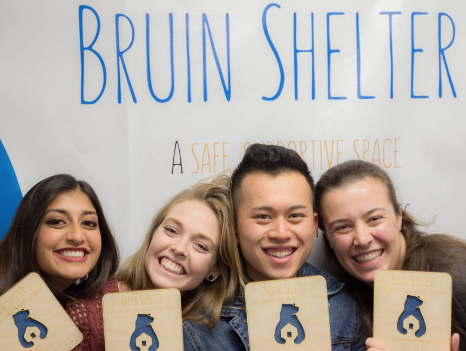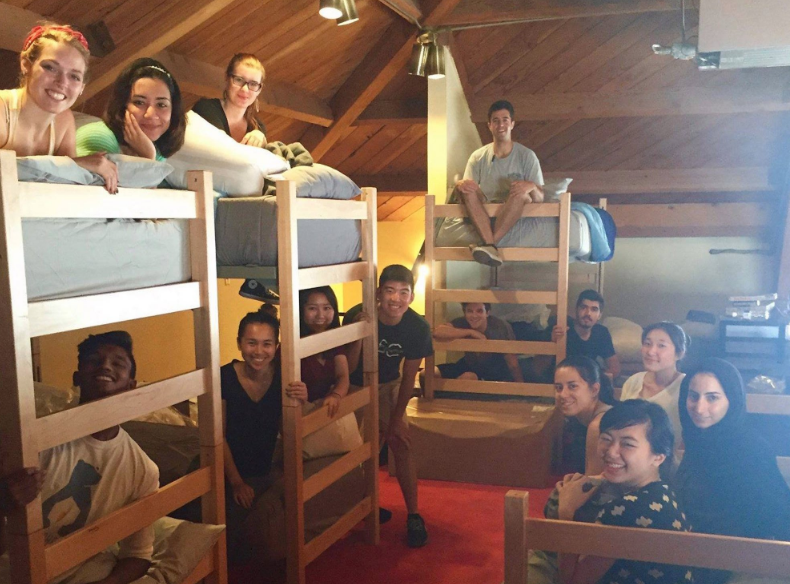College is so expensive, this 27-year-old rocket scientist created a homeless shelter for students

Your support helps us to tell the story
From reproductive rights to climate change to Big Tech, The Independent is on the ground when the story is developing. Whether it's investigating the financials of Elon Musk's pro-Trump PAC or producing our latest documentary, 'The A Word', which shines a light on the American women fighting for reproductive rights, we know how important it is to parse out the facts from the messaging.
At such a critical moment in US history, we need reporters on the ground. Your donation allows us to keep sending journalists to speak to both sides of the story.
The Independent is trusted by Americans across the entire political spectrum. And unlike many other quality news outlets, we choose not to lock Americans out of our reporting and analysis with paywalls. We believe quality journalism should be available to everyone, paid for by those who can afford it.
Your support makes all the difference.Louis Tse, 27, lived in his car to save money while completing his doctoral studies at the University of California, Los Angeles.
A duffel bag holding bottled water and non-perishable foods served as his kitchen. Family photos hung on the backseat windows. At night, Tse parked wherever he found an open WiFi network so he could do homework.
"For young people who are experiencing homelessness, they could go to the nearest youth shelter, which is a two-hour drive away in Hollywood -- or rough it out. That's the path of least resistance," Tse, now a thermal engineer at NASA's Jet Propulsion Laboratory, tells Business Insider. He declined to comment on his current living situation.
In October 2016, Tse and former classmate Luke Shaw opened up a student-run shelter for students who are experiencing homelessness because of the sky-high costs of higher education. Students for Students, formerly known as the Bruin Shelter, provides them with a safe and supportive place to eat, sleep, socialize, and study during the academic year.

The shelter has nine beds and welcomes college students from the Los Angeles area (a majority come from UCLA, because of its proximity to campus). Unlike traditional shelters, which use a lottery-based system to fill beds, Students for Students interviews applicants and offers a place to stay for up to six months. Breakfast and dinner are served family-style every day.
There are 60 student-volunteers who keep the shelter running day and night. Case managers from the UCLA Department of Social Welfare come by to help residents locate more permanent housing and tap into city programs that subsidize rent for homeless individuals. Medical and dental students from the university provide routine check-ups. Counseling is also available.
Tse says that having a home base goes a long way for a young person juggling school, a job, and a life. The city's resource-starved shelters take in people of all ages, some of whom are combatting severe mental illnesses; it's hard for struggling college students to fit in there.
"Knowing that you have a stable place to stay helps you be more stable," Tse says.
A striking number of college students in the US are living without permanent housing. A recent study from the University of Wisconsin surveyed 33,000 students across 70 US community colleges. Of these students, about half were "housing insecure," meaning they bounce between homes often or cannot afford the cost of living. A staggering 14% of students were homeless.
In California, one in three community college students face some level of housing insecurity. The problem extends to four-year universities as well, as Tse saw firsthand.
Tse and Shaw were inspired to build their organization by a similar shelter for young adults at Harvard University. They won a $20,000 grant from the David Geffen School of Medicine at UCLA and asked for donations -- ranging from food, clothes, blankets, and toiletries -- from the community. Last fall, they opened the doors of a refurbished church space to students.
They expect to serve 18 to 27 individuals per academic semester.
In its first semester, Students for Students welcomed a student who grew up in the foster care system and fell through the cracks of a scholarship program that assists fostered youth with college costs. Months later, shelter volunteers saw the student walk at graduation.
"We're all in school because we value education and we know that getting a diploma is necessary if you're to open doors for yourself in life," Tse says. "That's the mission that drives us. There are students who are facing a variety of life circumstances, and we want to help them get to that point."
Read more:
• How much the best paid workers in 20 professions earn
• Seven outdated men’s style ‘rules’ that you can now ignore
• 16 skills that are hard to learn but will pay off forever
Read the original article on Business Insider UK. © 2018. Follow Business Insider UK on Twitter.
Join our commenting forum
Join thought-provoking conversations, follow other Independent readers and see their replies
Comments